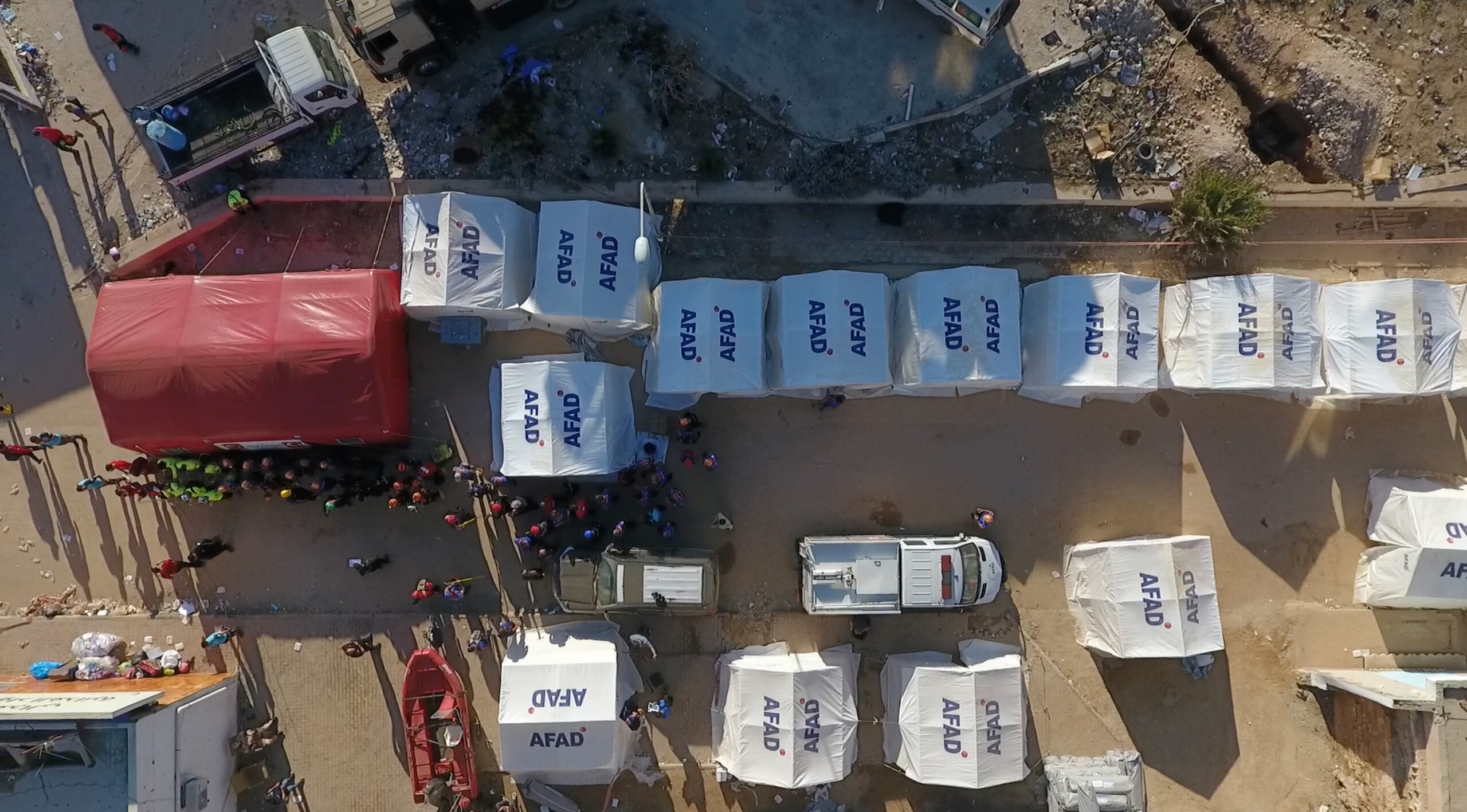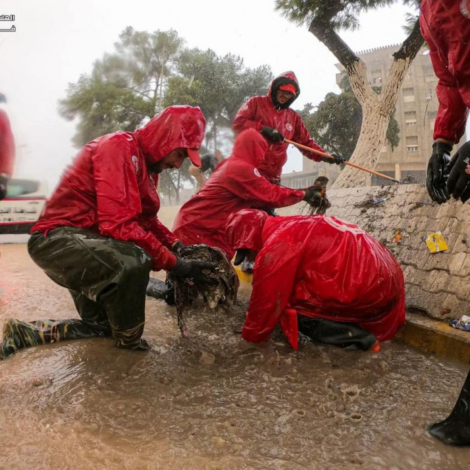Heavy rainfall from Storm Daniel caused dams and bridges to collapse in Derna, Libya, flooding the city and claiming thousands of lives. Instead of sending physical items, research suggests that donating money to verified humanitarian organizations is the most efficient way to help during disasters. As Hossein Zarei writes in The Conversation, in-kind donations can overwhelm aid networks and may not be appropriate for fast-moving disaster response. Cash donations respect the dignity of recipients, prevent duplication, and support the local economy. From The Conversation:
To avoid such backlogs, research shows donating money in cash or via bank transfer to verified international humanitarian organizations is the most helpful and efficient response to humanitarian crises. Within the past decade, some organizations have even launched successful cash and voucher assistance programs to pass this money on to people in dire need.
A COMPOUNDED CRISIS

Photo: IFRC
The storm exposed the lack of preparedness for natural disasters in Derna and Libya. Libya’s political division and economic struggles have been exacerbated by ongoing civil conflict, causing a drop in GDP per capita despite the country’s abundant oil reserves. Derna, controlled by a rival administration, faces challenges in receiving aid and maintaining critical infrastructure.
Neglected dams, inadequate meteorological services, and compromised healthcare infrastructure have compounded the crisis. Further, the city’s economic activity has also been hampered by port closures and security concerns.
WHERE TO SEND CASH
International Committee of the Red Cross
“In the wake of Storm Daniel on September 10, the ICRC is working with its partner the Libyan Red Crescent to deliver medicine, food, and household items to survivors. We are also helping in the dignified management of the dead.” – ICRC
Related – The International Federation of Red Cross and Red Crescent Societies (IFRC)
IFRC has announced an emergency appeal for 10 million Swiss Francs to scale up the Libyan Red Crescent’s relief efforts in response to the floods caused by Storm Daniel in north-eastern Libya.
World Food Programme (WFP)
WFP has begun providing desperately needed food assistance to more than 5,000 families displaced by massive flooding in Libya… On Tuesday, food distributions, through WFP’s partner LibAid, had already reached 2,000 people who had fled Derna and arrived in the city of Benghazi. On Wednesday, WFP was distributing food to about 700 flood-affected families in four locations within Derna. – WFP
The United Nations Humanitarian Response Depot
WFP UNHRD is a network of strategically located hubs for prepositioning relief items and humanitarian support equipment, and WFP (above) is a partner.
Médecins Sans Frontières / Doctors Without Borders (MSF)
MSF dispatched an emergency team from Misrata on September 13… MSF is in close contact with the Libyan Red Crescent—the main aid actor right now in Derna. The emergency team is traveling with supplies to donate on arrival, including 400 body bags; 200 medical kits of disinfectants, compresses, sutures, and bandages to treat the wounded; and casualty care kits for 250 patients containing gloves, antibiotics, dressings, and surgical masks. – MSF
UN Central Emergency Response Fund
[No update on Libya, yet] CERF is one of the fastest and most effective ways to ensure that urgently needed humanitarian assistance reaches people caught up in crises. Established by the United Nations General Assembly in 2005 as the United Nations global emergency response fund, CERF enables humanitarian responders to deliver life-saving assistance whenever and wherever crises strike. – CERF
Please use the comments below to recommend organizations that can use cash donations effectively in Libya.

